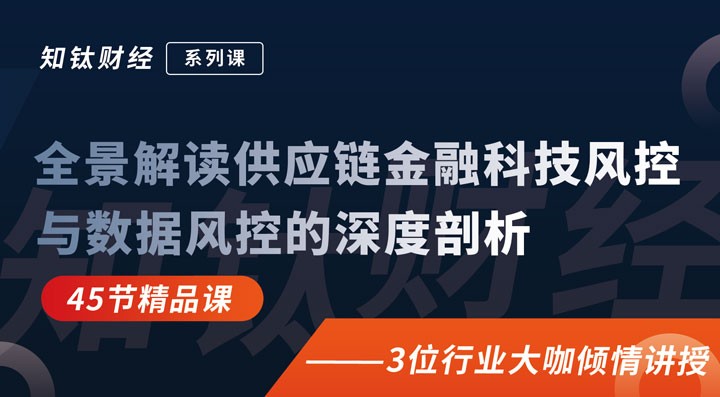避税港型离岸金融中心对中国的挑战
编者按■人民币国际化是中国人民大学国际货币研究所(IMI)的重点研究领域。自2012年研究所首次发布《人民币国际化报告2012》并首创人民币国际化指数

■人民币国际化是中国人民大学国际货币研究所(IMI)的重点研究领域。自2012年研究所首次发布《人民币国际化报告2012》并首创人民币国际化指数(RII)以来,已经连续三年编写并发布《人民币国际化报告》。尽管时间不长,报告因其独立性、客观性和决策参考性,得到了社会各界尤其是政策部门的高度关注。同时报告还被译成英文和日文同步发布,在国内外理论与实务界均产生较大影响。《人民币国际化报告2014》主题为人民币离岸市场建设与发展。《IMI研报》栏目将于每周四连续刊登《人民币国际化报告2014》节选系列文章,以飨读者。本文系《人民币国际化报告2014》系列六十:避税港型离岸金融中心对中国的挑战。 ■RMB Internationalization is a key research area of IMI. In order to faithfully record the progress of RMB internationalization and objectively reflect the challenges in the long run, IMI has been releasing the “RMB Internationalization Report” since 2012. The Reports draw broad attention from all sectors of society due to the independence, objectivity and referential value for decision making. Currently, the Reports have been released in both China and abroad simultaneously in English, Japanese, Simplified and Traditional Chinese characters. RMB Internationalization Report 2014 themed the development and construction of offshore RMB markets. Every Thursday, this column carries excerpt from the Report 2014.
截止2013年4月底,我国累计实际利用外国直接投资的总额就达到了1.3万亿美元,位居全球第二位,而且在2013第二季度年成为了资本净输出的国家。不可否认这些离岸金融中心在其中发挥了重要作用。
尽管有很多正面影响,但离岸金融中心对中国的经济和社会发展等方面构成了挑战甚至是威胁。
第一,“返程投资”现象严重,造成宏观经济决策的失误。从统计数据看,我国吸收利用的外资绝大部分是来自避税港型的离岸金融中心,香港、新加坡、英属维尔京群岛、巴巴多斯、开曼群岛等都位居前列。而这些地区也一直是我国对外直接投资最为集中的地区。其中,我国从香港吸收投资所占比例高达80%以上,而对拉丁美洲的直接投资高度集中在开曼群岛和英属维尔京群岛两个离岸金融中心。联合国的《2013年世界投资报告》(UNCTAD,2013)研究发现,国内外的跨国公司都是将在离岸金融中心设立各种特殊目的实体(SPV)作为其国际投资的一个“跳板”。因此,在某种意义上,来自这些离岸金融中心的外资都是“虚假的”外资。如果不剔除这些来自离岸金融中心的“返程投资”,势必有可能给我国的决策者传递错误信息,造成决策的失误。
第二,海外转移资产与非法资本流动。利用离岸金融中心向境外转移资产成为我国腐败分子向境外转移资产的途径之一。全球金融诚信组织(GFI)发布的《发展中国家非法资本流动:2001-2010年》显示,在截至2010年的10年中,有总计约5.9万亿美元非法资金流出约150个发展中国家,其中以我国为最,非法资金流出规模最大,主要是流向境外避税地型的离岸金融中心或发达国家金融机构。报告显示,2010年我国非法资金流出总量4200亿美元,在截至2010年的10年中总计2.7万亿美元,接近发展中国家总额的一半,是全球资本外流情况最严重的国家。巨额的非法资金外流会影响我国的政治形象和威胁到国家的经济安全。而目前的情况是,除了香港,像英属维尔京群岛和百慕大群岛那样的离岸金融中心早就成为了很多富豪和企业家、腐败分子转移业务和资产的最佳选择。
第三,税收收入流失。离岸金融中心为避税者和逃税者提供了可乘之机,长期以来,我国政府用税收优惠来吸引外资,也推动了内地投资者使用离岸金融中心。例如,一些我国厂商用“返程投资”的方式避税:在境外成立子公司,由国内的母公司将在内地生产的产品低价卖给离岸的子公司。母公司由于账上利润少、甚至没有盈利,自然免税。然后再由子公司把产品以高价卖给别的公司,把利润汇回母公司。这部分利润是当作母公司从英属维尔京群岛或香港获得的“外商投资”,也无需向我国政府缴税。我国的对外直接投资和海外直接投资集中于避税港型离岸金融中心的趋势越来越明显,税收因素无疑是重要因素之一。跨国公司利用转移定价和滥用税收协定等方式将本该在我国实现的利润或应缴纳的税款转移到离岸金融中心,给我国造成巨额的税收收入流失。
第四,为非法活动创造条件。有证据显示,我国一些公司和个人利用离岸公司进行非法活动。2013年9月,前铁道部高官张曙光承认转移28亿美元到海外账户。目前身陷囹圄的我国前首富黄光裕也曾运用离岸公司进行商业操作。黄与妻子杜鹃在2001到2008年间至少成立了31家英属维尔京群岛公司。当时他们持有的国美集团是全国最大的电器商连锁。2010年,黄因内幕交易、贿赂和操纵股价,被判有期徒刑14年。杜也以相关罪名获刑,但二审获改判,当场释放。黄大部分资产被冻结,但利用离岸金融网络维系他的商业王国。2011年,黄名下的英属维尔京群岛公司Eagle Vantage Assets Management竞购英国退役航母,欲打造成高端购物商场。黄光裕目前通过Shining Crown Holdings and Shine Group这两家英属维尔京群岛公司控制国美集团30%多的股份。
实际上,世界各国对离岸金融中心大多持自由放任的态度。直至2008年国际金融危机爆发后,离岸金融中心的客户泛滥,涉嫌逃税、洗钱甚至资助恐怖组织等重大问题才受到主要国家的重视。在美国的巨大压力之下,瑞士的保密法有所松动,离岸金融中心的避税港功能开始下降。随着各国反洗钱行动的深入,离岸市场非法资金流动的渠道也会越来越窄。
As the end of April 2013, accumulated foreign direct investment in China arrived at 1.3 trillion US dollars, ranked second position after USA in the world, furthermore, China became one of net capital exporting countries in second quarter 2013. There is no surprise that offshore financial centers are playing a significant and growing role.
Tax havents can pose some challenges even threats on Chinese economy and social development.
First of all, huge mount of roundtripping investment can lead to misleading decision-making. The statistic data released by Chinese governments reveal that a significant part of foreign direct investment in china came from some tax havens. among them, Hongkong, British Virgin Islands, Babados, Cayman Islands are on the first lines, those are the most important source of foreign direct investment. Over 80 percent of foreign direct investment in china came from Hongkong, and oversea direct investment (ODI) concentrated in two tax havens: Cayman Islands and British Virgin Islands. World Investment Report 2013 shows us that special purpose entities or vehicles( SPE or SPV) established by local and international mulnationals usually could be use as conduit( UNCTAD, 2014). So some foreign direct investment from those tax havens are FAKE. Those convey some misleading information to decisonmakers in china, wrong decision came into being in the end.
Second , transfer assets overseas and illeagal capital flows. Tax havens or offshore financial centers can be used by Chinese corrupts to shifting their assets.some findings in one report titled “Illicit Capital Flight from Developing Countries 2001-2010 ”published by Global Financial Itegrity( GFI) based in Washington DC show that as 2010, the size of illicit capital flight was estimated to be 5.9 trillion US dollars in ten years from 150 develop countries, China ranks number one, which has the largest size, mainly flowed to some tax havens or financial institutions in developed economies. The report reveals the amount of illcit capial flight from china was 420 billion US dollars per year, accumulated to 2.7trillion US dollars in ten years by 2010, equivalent half of amount of capital flight from developing countries. Huge amount of illicit capital flight are posing threats on chinese political image and economic security. Besides Hongkong, some tax havens has been best destinations for many High net wealth individuals (HNWI), business owners and corrupts through which they can shifting their operation and assets.
The third, loss of tax revenue.tax havens.tax havens provide useful opptornunities for tax adoiance and tax evasion.chinese governments use tax incentives to attract foreign investment since beginning of reform and openness in end of 1970s. This gave some incentive for foreign investors and domestic investors take advantage of those benefits. Some Chinese firms can minimize their tax bills in form of roundtripping investment: they established and incorporated a subsidiary overseas, then domestic parent company underpriced their products manufactured in china to oversea subisidiaries,those result low profit or no profit, even loss, pay low or no taxes. Then, subsidiaries overpriced the products to other companies, remitted profit to their parent company. This part of business profit will be deemed to be foreign investment from BVI or Hongkong, are not subject to enterprise income tax in china.with globalization, one trend is FDI and ODI in china are geographically concentrated in those tax havens, tax is one factor of business climate, will be increasingly important. Multinationals can shifting their profits would be realized and payable in china to offshore financial centers in form of transfer pricing and abuse of tax treaty, the consequence of tax avoidance and evasion is huge amount of tax loss annually.
The forth and last, establishes conditions for illicit activities. There are some evidence show that some companies and individuals are exploiting offshore financial centers to fufil their illicit purpose. In September 2013, former senior official Shuguang Zhang confessed that he transfered 2.8billion US dollars to offshore accounts. Former richest in china Guangyu Huang did business through offshore companies. His wife Juan Du established not less than 31 companies incorporated in British Virgin Islands. The Guomei group they owned was the largest home appliance chains in china. In 2010, Mr Huang was sentenced in prison for 14 years for insider trade, bribery and stockprice manipulation. Miss Du was sent to prison for related crime, but the decision was changed in second trial, she was released in court. Most of Huang’s personal assets were frozen, while he maintain their business empire through offshore financial websystem. In 2011, Eagle Vantage Assets Management incorporate by Huang in British Virgin Islands gave this offer to buy a British retired carrier, wanted to chang it into a high end shopper mall.Huang controlled more than 30% stake of Guomei group through Shining Crown Holdings and Shine Group incorporated in British Virgin Islands.
Jurisdictions around world used to take a laissez-faire attitude in practice. Until 2008 after the outbreak of the international financial crisis, offshore financial center customers flooded, suspected of tax evasion and money laundering or funding terrorist groups and other major problems drawed the attention of the major countries. Under huge pressure from United States, Swiss secrecy laws lessened a bit, tax function of offshore tax havens began to decline. With implementation and reinforcement of the anti-money laundering acts around world, the illicit capital flow channel in offshoremarkets will be more narrow.
来源: IMI财经观察
 表情
表情

